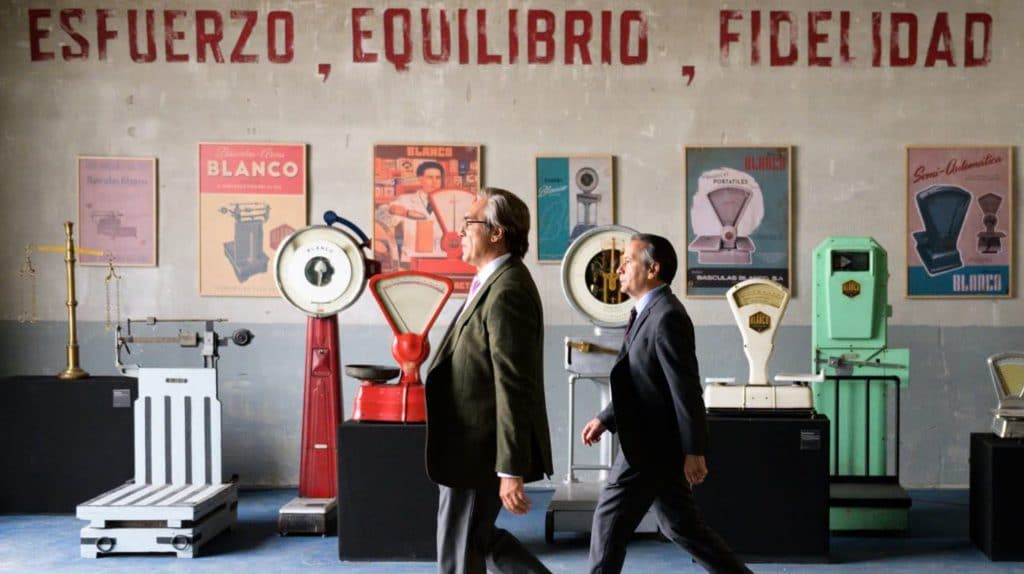
Tim Kroenert
21 April 2022
What makes a good boss? Early in El Buen Patrón, as it is in the original Spanish, we see Julio Blanco (Javier Bardem) holding court in the factory he owns. He stands atop a cherry picker, delivering a speech to the workers below. They regard him with near awe as he waxes lyrical about loyalty, about how they are not merely his employees but his family. His soliloquy is interrupted by the howls of an ex-employee who is displeased with the size of his severance pay.
In the next scene, Blanco makes similar allusions to family as he bids farewell to a trio of interns. Caught up in the moment, one of them steps forward and declares her love for him, then scurries away. The moment both reveals the extent of the admiration to which Blanco is accustomed, and acts as a portent of things to come. His factory manufactures scales, and he is a font of aphorisms about justice and balance. But things in his fiefdom are more off balance than they first appear.
Blanco Scales is in line for an award, and the awards committee is due to drop by any day. In Blanco’s home, a spotlight illuminates a blank space on a wall that’s otherwise replete with plaques and trophies. He is plagued by that gap. The film traces the lengths to which he’ll go to fill it. Keeping things ship-shape for the awards committee turns out to be a delicate balancing act. The howling, disgruntled ex-employee, José (Óscar de la Fuente), is only the beginning of his problems.
Through a dark comic lens, The Good Boss supplies a trenchant study of power and privilege. As the week progresses Blanco, a married man, navigates the perils of a flirtation with a new intern (Almudena Amor). He coaches a longtime lieutenant (Manolo Solo) through a marital rift that is affecting his work, but may have overestimated the sway he holds over this subordinate. José, meanwhile, grows less concerned with restitution than with simply tearing down the kindly despot.
Power corrupts all of Blanco’s relationships, no matter how many monologues about family he delivers. Even the favour he does for a worker whose son is in trouble with the law comes at a painful price. The charm and humour of Bardem’s performance only makes the character more monstrous. Whatever pretense he makes to justice and balance, his thumb is ever on the scales. The other characters grasp what crumbs of power might spill free. But in the end men like Blanco never really lose.
Screening at Cinema Nova
For more faith news, follow The Melbourne Anglican on Facebook, Twitter, or subscribe to our weekly emails.






